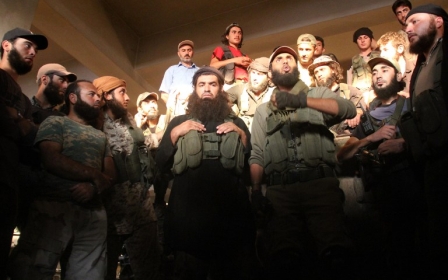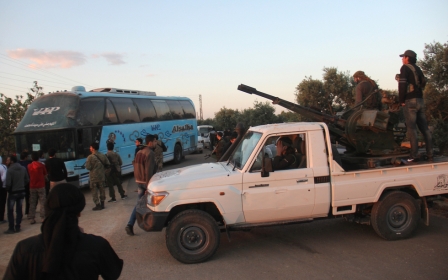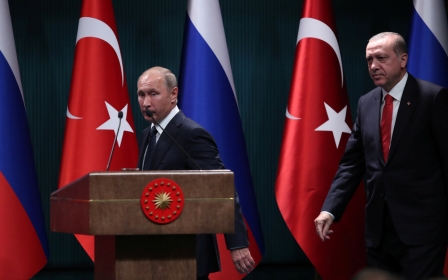Ex-chief of al-Qaeda branch in Syria in 'critical condition' after Russian strike

Russia said on Wednesday it had critically injured the leader of the Tahrir al-Sham militant group in Syria after launching an air strike on his position which had also killed 12 of his field commanders.
The Russian Defence Ministry said in a statement it had targeted Abu Mohamad al-Golani in an intelligence-led special operation while he was meeting his field commanders.
Golani - who was confirmed as leader in a statement only this week - and his men had been bombed by two Russian planes on 3 October, Defence Ministry spokesman Igor Konashenkov said in a statement, saying the militant leader who was the head of the Nusra Front before it merged with other groups to form Tahrir al-Sham, had been badly hurt.
"As a result of the strike, the Nusra Front leader, Abu Mohamad al-Golani, sustained numerous shrapnel wounds and, having lost an arm, is in a critical condition, according to information from several independent sources," Konashenkov said.
He said around 50 of Golani's bodyguards and 12 Nusra Front field commanders had been killed in the same air strike, including a close aide to Golani and the head of the militant group's security service.
More than 10 fighters received moderate and serious blast injuries, he said, adding that Su-34 and Su-35 jets were used to target the militants.
Al-Sham denied in a statement issued on Wednesday that Golani had been injured in the Russian strike, saying, “He is in good health and exercising his duties completely.”
The ministry said the air strike was part of an ongoing operation to destroy militants who had launched an offensive on 18 September which had surrounded 29 Russian military policemen who then had to be broken out in an operation backed by air power.
The Jabhat al-Nusra, or al-Nusra Front, shed its status as al-Qaeda’s Syrian affiliate in 2016 and became Fateh al-Sham Front.
Since 2017, it dominates a coalition of militant factions called Hayat Tahrir al-Sham (HTS).
The alliance controls most of the northwestern province of Idlib after expelling Islamist former allies earlier this year.
Washington and the UN did not recognise the break from al-Qaeda and retained the militants on their terror blacklists.
Middle East Eye propose une couverture et une analyse indépendantes et incomparables du Moyen-Orient, de l’Afrique du Nord et d’autres régions du monde. Pour en savoir plus sur la reprise de ce contenu et les frais qui s’appliquent, veuillez remplir ce formulaire [en anglais]. Pour en savoir plus sur MEE, cliquez ici [en anglais].




